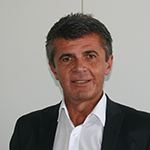Main Features
CO2 Emissions saved (tCO2)
annual reduction of 300.000 tonnes of CO2
Partnerships
German utility E.ON
UPM Hürth is the world’s most modern newsprint mill, with annual production capacity of 330,000 tonnes of newsprint-grade paper made entirely from recycled fibre. The mill is located in an industrial park near Cologne, Germany, in a region that is today shaped by industrial scale lignite extraction and related industries. Lignite has also been the fuel used to provide steam and electricity for a number of companies, including UPM Hürth.
Together with German utility E.ON, UPM initiated a project to establish a green power source to provide process heat for paper production at the mill and green power for a large number of surrounding companies. E.ON is building a wood-fired biomass plant with a total generation capacity of 20MW of electricity and 87MW thermal generation capacity. Upon ramp-up in 2022, this power plant will replace the current lignite-based generation, contributing to an annual reduction of Scope 1 CO2 emissions of 300,000 tonnes for UPM alone.
This project supports UPM’s ambitious climate targets of a net emission reduction of 65% by 2030 and the company’s long-term pledge to achieve carbon neutrality by 2040. What’s more, it is also an enabler for the transition of the German power system away from fossil power generation by providing a stable and sustainable power generation, which is needed to support efficient use of the increasing capacity of fluctuating renewable power generation sources in Germany. Thus, UPM Green Steam Hürth is a cross-stakeholder project that enables a positive contribution of the pulp and paper industries to solving the global climate crisis

Rainer Häring
Director for energy in UPM Communication Papers
What is exceptional about the project?
The project has been initiated by UPM in Germany
and planned in partnership with the utility operating
the powerplant with a view to supplying other local
businesses. In this case, a cross-company effort establishes
a renewable energy generation facility in the middle of an
industrial region shaped by lignite extraction and lignite
based energy generation.
Is the project part of a bigger scheme towards
decarbonisation?
It is in so far as it supports the German energy transition.
The increasing share of renewable power generation is
a key to reducing CO2 emissions. To ensure a consistent
supply and system stability availability of climate friendly
conventional power generation is indispensable. Green
power generation concepts at the scale of the Hürth
Bioboiler are a vital element of the new German energy
infrastructure.
Main Features
CO2 Emissions saved (tCO2)
annual reduction of 300.000 tonnes of CO2
Partnerships
German utility E.ON